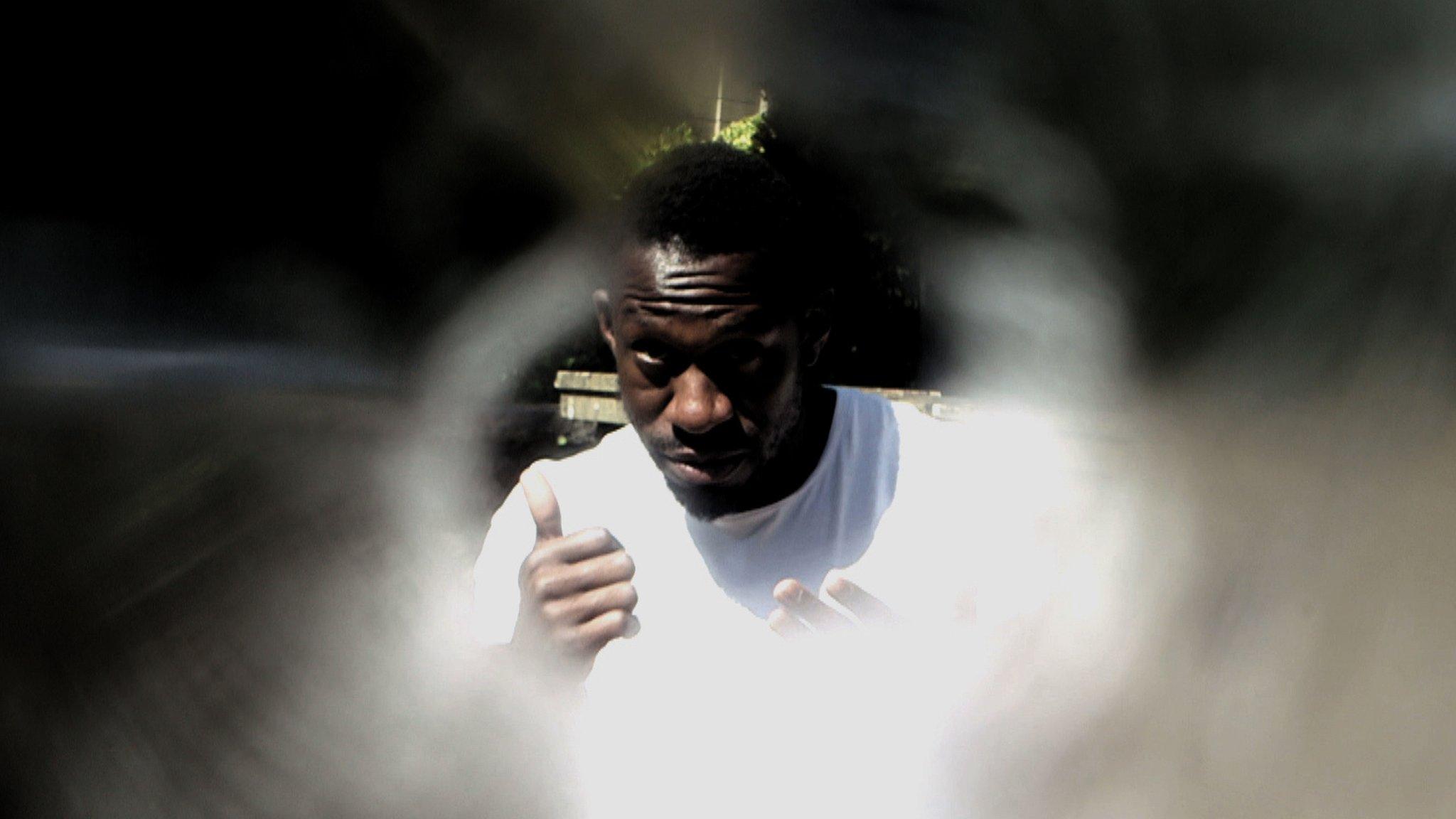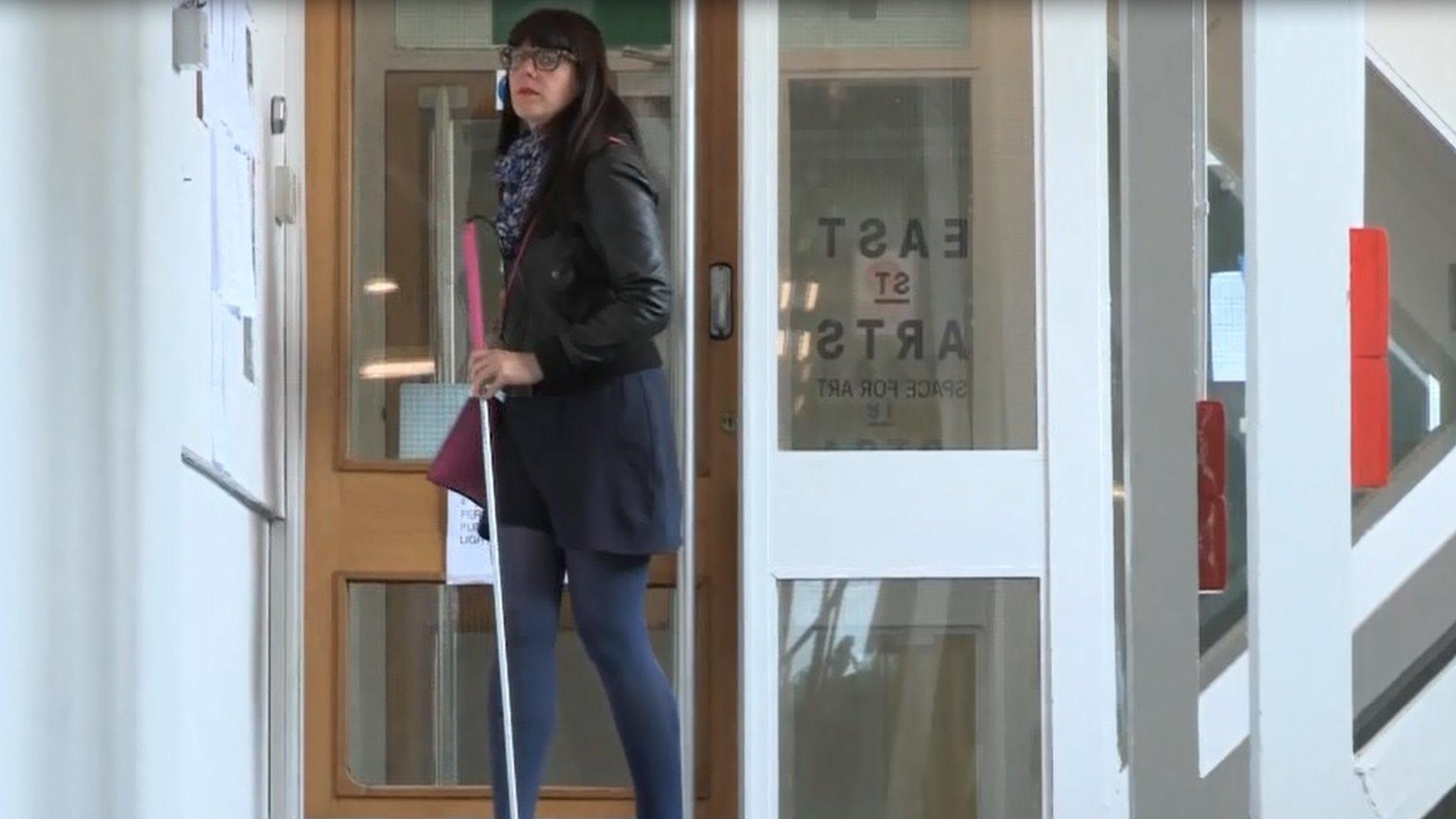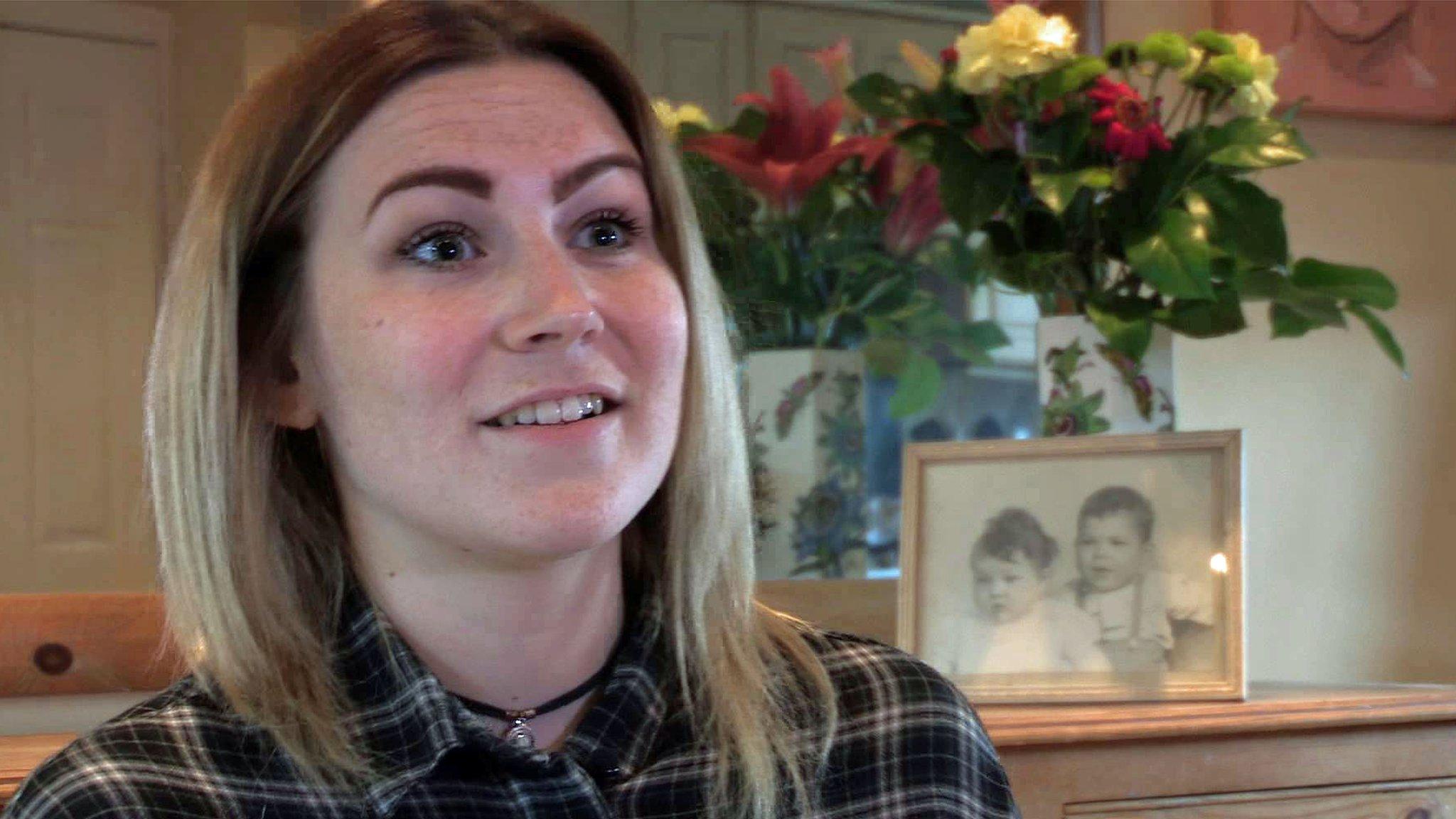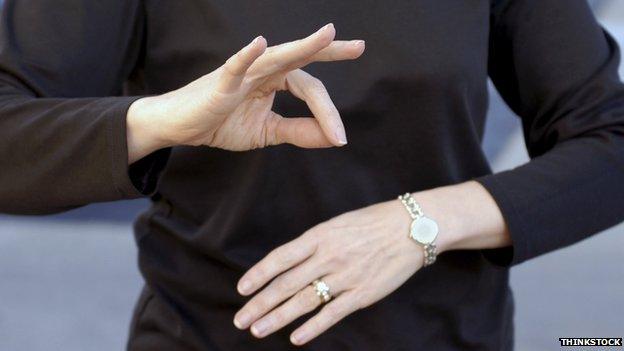Losing your sight as a deaf person
- Published

See Hear created images of what some people with Usher syndrome experience
Sight is very important for deaf people, especially when attempting to talk with others, so what happens if you also start to go blind?
Deaf people are very visual, we use sign language and lip-reading as a way to communicate and socialise, so the prospect of losing our sight can be very daunting. A medical study found deaf people may even have enhanced peripheral vision, compensating for a lack of hearing.
There is one group of deaf people who live with the near certainty that their sight will fade. Those with Usher syndrome are born deaf and later, through an associated condition called Retinitis Pigmentosa, also lose their sight. Peripheral vision becomes restricted, night vision worsens and sudden changes from dark to light (and vice versa) take a much longer time to adjust to.
But more isolating and upsetting can be the end of a lifetime of communicating easily. Lip-reading becomes more difficult and understanding sign language becomes trickier. It can be very tiring to concentrate on small movements if you have limited vision.

Rebecca Atkinson has gradually lost her peripheral vision
There are ways that deaf people can communicate with deafblind people easily, says Rebecca Atkinson, a journalist from Norwich who has Usher syndrome, including using British Sign Language but allowing the deafblind person to put their hands on top of the signer's in order to feel the shape of the signs.
But she says the worst thing about Usher syndrome for her is the lack of motivation by deaf people to communicate with those who also have sight loss.
"Deaf people have plenty of experience of being patronised by hearing people, being called brave or special for 'coping' with their deafness," she says. "But that exact same treatment is meted out by deaf people to deaf people who are also partially sighted - and it's a cruel irony."
Des Masterson's vision is diminishing too, and like Atkinson he has noticed he's losing social connections with people. He says Usher syndrome doesn't cause this - it's about how deaf people treat him, and no longer engage in conversation with him.

For Molly Watt having Usher syndrome came with a number of problems
Loss of friendships and acquaintances is a common theme for deaf people who lose their sight but student Molly Watt, from Maidenhead, says she also experienced resentment from those around her.
When she was a teenager she attended a boarding school for deaf children. Her vision was already severely reduced, meaning she needed to sit at the front of the classroom to be able to see the teacher and whiteboard. But she says her deaf classmates didn't believe she needed special arrangements and so treated her with suspicion. "It was constantly like they were questioning me for it, and I was questioning myself," she says.
Every person with Usher syndrome is different. Though often referred to as deafblind, some are born with only mild hearing loss, others are profoundly deaf. Some will find their vision deteriorating very quickly to the point of total blindness in their teenage years, others will have usable vision for most of their life.
Many with Usher syndrome say that it's not all doom and gloom, and that life can be rich and happy with friendships maintained, but it could be made a lot easier if the communication barriers weren't so big.

Sign language is the first language for many deaf people in the UK
There are lots of simple ways in which both deaf and hearing people could make conversations easier for deafblind people, Atkinson says, and that it is only fair they are included as much as possible.
Finding a well-lit space or moving from a darkened area of a pub to one with better lighting is helpful, for example, as is standing in a position which is close enough for a deafblind person to see both the face for lip-reading, and hands for signing.
Those are just some more simple things that can be done - but more than anything it takes time, patience and understanding. It is, of course, easier to do nothing, but that doesn't help.
As Watt puts it: "Everybody wants to be spoken to, no-one really wants to feel left out."
Perhaps the biggest obstacle to deaf people is fear. Seeing a deaf person with a guide dog or a white stick with red bands around it is the physical manifestation of that which most deaf people fear losing - their sight.
See Hear's programme on deafblind people is on iPlayer here.
Follow @BBCOuch, external on Twitter and on Facebook, external, and listen to our monthly talk show